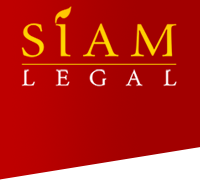Registering a Trademark in Thailand, Part 2
The previous article discussed Section 6 of the Trademark Act of of B.E. 2534 (1991), as amended until B.E. 2543 (2000), which listed the criteria for determining whether a trademark was registrable. In short, Thai law allows for a trademark to be registered if it is distinctive, not prohibited by law, and not the same or similar to a trademark registered by someone else. However, other aspects of trademark registration under Thai law, which must be considered are the class system, disclaimers, registration procedure, official fees, and renewal.

The Department of Intellectual Property (DIP) maintains a classification of different categories of goods and services, in which there are 45 different classes. Goods and services in the same category are considered to be “related.” This is relevant because the DIP only allows the protection of a trademark for a specific class of goods and services. This means that if one registers a trademark for a specific good or service, the legal protection afforded to that trademark would not necessarily apply to an unrelated good or service.
Therefore, if an applicant in the business of manufacturing furniture (Class 20) registers a trademark for its business, that trademark protection would not necessarily apply if another business started using that very same trademark for a line of cosmetic products (Class 3). However, if another business began using the trademark for a line of picture frames, which is also categorized as Class 20, then the trademark protection would apply since furniture and pictures frame are within the same category.
Another issue to be considered is that if a trademark applicant registers a trademark that contains elements that are not registrable. He risks the rejection of the application unless he disclaims the portions which are not registrable. Therefore, an applicant who wishes to register a trademark for a line breath mints which features a mountain range and the words “Minty Fresh” would have his application rejected unless he disclaims the words “Minty Fresh”. This is because those words are descriptive of the character and quality of the product. In regards to the registration procedure, as stated in the previous article, all applications must be made with the DIP.
The process usually takes eight to ten months assuming that no problems arise. In regards to the official fees that the applicant must pay, the charge is 500 baht per “item.” The term “item” refers to a product or service from one of the aforementioned classes of products or services. Therefore, the registration of a trademark for a line of picture frames and a line of cosmetic products would equal 1000 baht, since those two types of products are from two separate classes. The final important aspect of trademark registration which must be considered is the renewal of the trademark. The DIP designates a procedure for the renewal of a trade. The cost is 1000 baht for each item to be trademarked.
Category: Business in Thailand, Company Law, Company Registration
About the Author (Author Profile)
Siam Legal is an international law firm with experienced lawyers, attorneys, and solicitors both in Thailand law and international law. This Thailand law firm offers comprehensive legal services in Thailand to both local and foreign clients for Litigation such as civil & criminal cases, labor disputes, commercial cases, divorce, adoption, extradition, fraud, and drug cases. Other legal expertise of the law firm varied in cases involving corporate law such as company registration & Thailand BOI, family law, property law, and private investigation.











